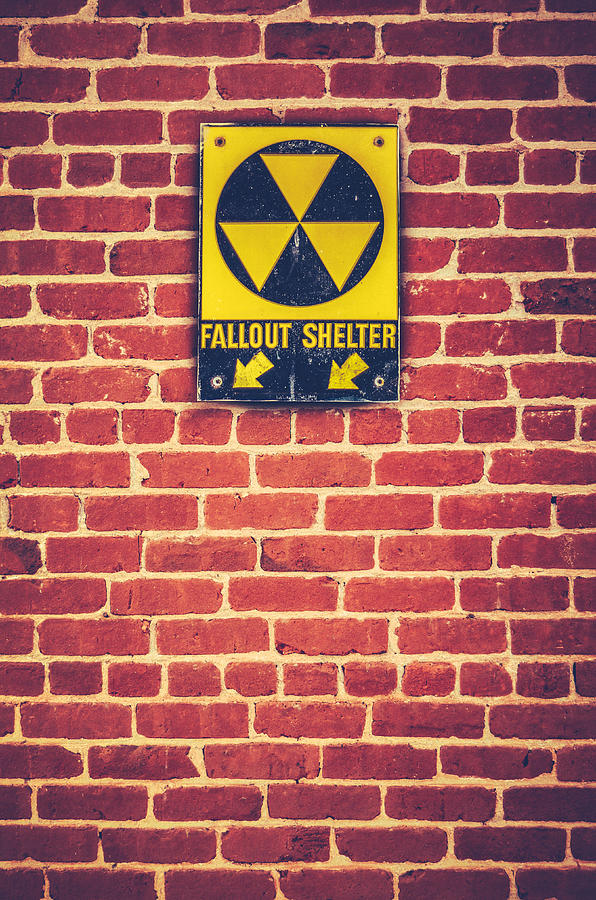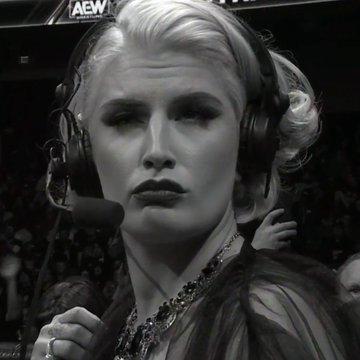Did you live in constant fear of being nuked? Or was it more chill most of the time?
Germany, born early seventies. Background, there was a strong “never again” sentiment after WW2 and to that end we were educated about the horrors of war from an early age. WW2 and the Third Reich was discussed in school and also very present in living memories of grandparents and their friends.
It was made very clear to us where the first nukes would drop (Germany) and who would drop them (Germans). Flexible response was explained to us, the Nato strategy of using nukes first, as well as MAD. We were given estimated times from sirens blaring to explosion. We visited a bunker, and we were imagining nuclear hellscapes and asking ourselves if one should even try to enter a bunker to try to survive. Pershing II were discussed and MIRV, which were new technologies at the time.
Sonic booms from military jets were common, we would respond to that with “Russians are coming”. Not fear, but fatalism was the usual response, and a large number of young men would reject draft and opt for civilian service, wanting to do something productive during service instead of training to get pulverized in the first wave.
Then came Gorbatschow, and Reagan would still pursue his star wars programme, which left us scratching our heads.
Not the point of your post, but I’ve never seen Gorbatschow spelled like that. In English it’s transliterated as Gorbachev. That’s super interesting. Like I know Russian has a different alphabet, but I just never thought about how Latin spellings of Russian words are basically approximations. I wouldn’t even know how to figure out other languages’ spellings of words like that. Like I could go to the other languages’ wikipedia pages… but I’d need to know the spelling to get there.
Wikipedia can work as a translation tool, because the same concept is linked through the language selection. You go to the English page for Gorbachev and open the language menu which will show you pages about the same person in all available and linked languages.
That’s actually really cool!
I was old enough to really remember only towards the very end, but from a kid’s POV in the US:
- It was mostly chill. The Russians were the bad guys in every action movie though.
- We were taught that Communism was bad and the people who lived under it had no freedoms and were hungry all the time.
- We didn’t really do nuke drills or anything, no “duck and cover” or whatever. We knew about it and that it was a possibility but it seemed like that was about it.
- It really was a cool feeling of optimism when the Berlin Wall fell.
Do you have any feelings about the whole situation now?
In terms of the optimism - it really is true that we thought it was the “end of history”. But I won’t fault someone my age thinking that - it was a movie or video game. The good guys won and that was that.
And the 90’s were pretty fantastic, at least for me. Not so much for the folks in, say, Yugoslavia. We were blinded by our ignorance and hope. Putin came into power and started behaving like a former Soviet dictator.
9/11 was……a huge wake up call. For all of the horrible things that happened on that day itself, it was a realization that we weren’t “done”. We had been naive. And that was depressing to come to terms with. It wasn’t going to be like the movies, ever.
It’s great to see the EU doing well regardless of Brexit. I think they’re a good example of what can happen when everyone decides to work together, and it’s been good to see them make rational decisions while the US has not been in some ways.
TLDR The Cold War was just 1 conflict with a lot of stories. When it ended, that conflict may have been over but there were other conflicts that had been brewing, they just didn’t have our attention and we saw what came after.
There is no movie and the good guys don’t always win. There is no “end of history”. Human rights and democracy need to be constantly worked on if we want to have them. Different countries and cultures working together is a good way to do that. Diversity and accepting people who are different from you are also important. No one can do this on their own; isolationism isn’t the answer.
I think that one’s age and the period of time (e.g. 1988, right before the end, and 1962, during the Cuban Missile Crisis were not the same) would be a factor here.
Nuclear war wasn’t a constant topic of discussion in my American experience, but more prominent than after the end of the Cold War.
Russia never lost the ability to conduct a large-scale nuclear strike, so in the sense that Moscow or Washington could trigger a large-scale nuclear war, things haven’t really functionally changed.
For most of the Cold War, mutually-assured-destruction was a factor, so I think that few expected an intentional surprise attack.
In some ways, risks were lower. The concern shifted towards nuclear terrorism, which is harder to deter.
And nuclear proliferation has meant that instead of two big camps with mutually-assured destruction, geographical separation and the resources to ensure a second strike capability, you have a lot of parties running around who may have a stronger incentive to perform a first strike. Maybe India and Pakistan – who have fought directly while both had nuclear weapons, for example:
https://en.wikipedia.org/wiki/Kargil_War
Since Pakistan and India each had weapons of mass destruction, many in the international community were concerned that if the Kargil conflict intensified, it could lead to nuclear war. Both countries had tested their nuclear capability in 1998 (India conducted its first test in 1974 while it was Pakistan’s first-ever nuclear test). Many political pundits believed the tests to be an indication of the escalating stakes in the scenario in South Asia. When the Kargil conflict started just a year after the nuclear tests, many nations desired to end it before it intensified.
Russia never lost the ability to conduct a large-scale nuclear strike, so in the sense that Moscow or Washington could trigger a large-scale nuclear war, things haven’t really functionally changed.
Well after the cold war there was (was) no major issue or ideology that would have sparked a war, there was during the cold war.
I don’t think that it was ever likely that either party was going to haul off and attack the other on ideological grounds.
Actually we had a lot of war hawks still at this point, willing to “win” before we couldn’t.
Less of a fear that we would get nuked and more of a fear that Reagan would do something colossally stupid.
I remember my school calling everyone in to the gymnatorium for a special announcement. They then told us that our town, and our school specifically, were going to be featured on a television show that night. And that we should all watch it with our families.
When little rizz watched that night with their family, they saw a shot of their school. And they pointed and said, “look!” Right as the warheads detonated over the school and everyone turned into skeletons.
And rizz lost their fricken mind from watching The Day After.
Wait is that the name inspiration for “the day after tomorrow”?
I doubt they put that much thought into the name.
When the apocalypse is hanging above your head, you tend to appreciate life while it lasts.
Also, music was better.
That’s why that entire generation did fuck all for climate change! The ol’ I was raised this way and turned out fine!
And climate change will be the reason the rest of you will do fuck all about every other problem.
There’a a whole generation of people who see climate change as a threat on par with nuclear war, and hence can justify any level of action or focus necessary so long as it’s related to climate change.
In Australia, attended high school during the 1980s. We were listening to:
- Frankie Goes to Hollywood - Two Tribes
If any member of your family should die while in the shelter, put them outside, but tag them first for identification purposes
- Nena - 99 Luftballons
99 Düsenflieger
Jeder war ein großer Krieger
Hielten sich für Captain Kirk
Es gab ein großes Feuerwerk
(99balloons[Edit] jet fighters, then there was a big war, they thought they were Captain Kirk, there were big fireworks)- Sting - Russians
How can I save my little boy
From Oppenheimer’s deadly toy?
What might save us, me and you,
Is if the Russians love their children tooAt school, we were taken to see Atomic Cafe, Miracle Mile, and they showed us Threads and The Day After on newfangled video tape. Wrote essays, analysed characters, situations, etc.
I’ve just recently found out that I’m high-functioning autistic, but even so, it’s only been in the past few years that me and my schoolmates, after lots of therapy, have been able to overcome trauma and fears of dying in a nuclear war at any second.
if you haven’t already, come join us at !autism@lemmy.world 🙂
For reference, born in 1966. The possibility of nuclear war was something everyone was aware of but people weren’t in constant fear. I think we did nuclear attack drills in grade school but can’t say for certain though the joke in the playground was “crawl under your desk, place your head between your knees and kiss your ass goodbye”. Just like today there was always some shit hitting the fan folks would freak out about until the next thing came along (Swine flu, Iran hostages, gas shortages). The oddest think I remember is the end of the Soviet Union and tearing down of the Berlin Wall. It was (fortunately) anticlimactic. We had been heard so much about the red scare. After that calling politicians “communist” disappeared for awhile until the kook media revived it
You know how schools have active shooter drills now? We had nuclear attack drills…. Duck and cover people, duck and cover.
If you haven’t seen it consider watching Wargames 1983 starring Mathew Broderick. It’s fiction and a story of course, but a crazy time capsule as well.
Inundated pop culture - War Games, Red Dawn, Rocky and every movie that needed a bad guy; If the Russians love their children too …
AVENGE ME!!!
Well, growing up in the 80s, I thought for a while I might not live to be an adult. I saw The Day After and I lived three blocks from a naval air station.
We often joke now about how the “foreign enemy” in every action movie in the 80s was Russian. Then, in the 90s, it wasn’t cool to pick on Russians anymore, and they switched to “Chechin” and “Bosnian” militants. Then, after 9/11, all Arab terrorists. Now, we’re getting back to Russians again.
I wouldn’t say constant fear. We did duck and cover drills alot in school. That’s about it.
The thing about mutually assured destruction is that it assures everyone loses. I wasn’t too worried. Accidental launches could happen and we got close a couple of times.
Most of the time it was chill. Lots of spy movies. And all sorts of propaganda was flying about.
In school there were signs for nuclear fallout shelters. Some drills, sort of like tornado drills. Discussion of the bomb was quite frequent and fatalistic. I grew up in a town that did arsenal and weapons testing that often shook the classroom windows.

These are still all over New York City.










